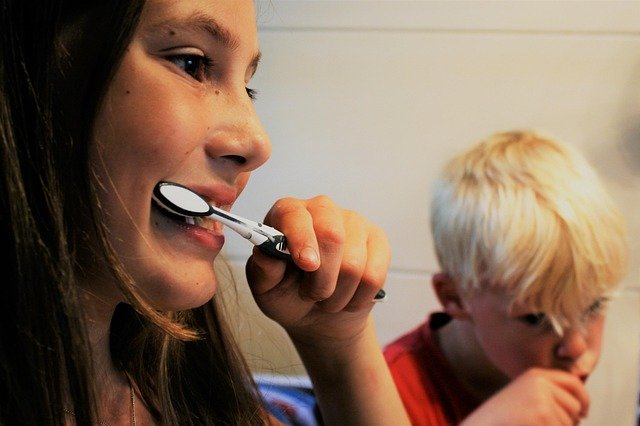5 Common Mistakes to Avoid in Your Teeth Care Routine
Maintaining a healthy smile is crucial for both our oral health and overall well-being. However, many of us unknowingly make mistakes in our daily teeth care routines that can have long-lasting consequences. By identifying and correcting these common errors, we can significantly improve our dental hygiene and protect our pearly whites for years to come. Let's explore five frequent mistakes people make in their teeth care routines and learn how to avoid them for a healthier, brighter smile.

How often should you really be brushing your teeth?
One of the most common mistakes people make in their teeth care routine is not brushing frequently enough. While many believe that brushing once a day is sufficient, dental professionals recommend brushing at least twice daily – once in the morning and once before bed. This habit helps remove plaque buildup, food particles, and bacteria that accumulate throughout the day. Brushing too infrequently can lead to tooth decay, gum disease, and bad breath. On the other hand, overzealous brushing more than three times a day can wear down tooth enamel and irritate gums. Stick to the twice-daily routine for optimal oral health.
Are you using the right brushing technique?
Even if you’re brushing twice a day, using the wrong technique can render your efforts less effective. Many people brush too aggressively, thinking that harder scrubbing equals cleaner teeth. However, this can damage tooth enamel and irritate gums. Instead, use gentle, circular motions with a soft-bristled brush. Hold the brush at a 45-degree angle to your gums and focus on cleaning each tooth individually. Don’t forget to brush your tongue to remove bacteria and freshen your breath. Spend at least two minutes brushing, dividing your mouth into quadrants and dedicating 30 seconds to each section.
How important is flossing in your daily routine?
Neglecting to floss is another critical mistake in many people’s teeth care routines. Brushing alone cannot reach the tight spaces between teeth where food particles and plaque accumulate. Daily flossing helps remove these debris and reduces the risk of cavities and gum disease. To floss effectively, use about 18 inches of floss, winding most of it around your middle fingers. Gently guide the floss between teeth using a rubbing motion, and curve it around each tooth in a C-shape. Be sure to floss below the gumline as well. If traditional floss is challenging, consider using interdental brushes or water flossers as alternatives.
Are you using the right toothpaste and mouthwash?
Choosing the right oral care products is crucial for maintaining good dental health. Many people make the mistake of selecting toothpaste based on flavor or whitening claims alone, without considering their specific dental needs. Look for toothpaste containing fluoride, which helps strengthen tooth enamel and prevent decay. If you have sensitive teeth, opt for a desensitizing toothpaste. Regarding mouthwash, choose an alcohol-free variety to avoid drying out your mouth, which can lead to increased bacterial growth. Consult with your dentist to determine which products are best suited for your individual oral health needs.
How does your diet impact your teeth care routine?
In the United States, the average person consumes about 152 pounds of sugar per year, which can significantly impact oral health. Many people underestimate the role diet plays in their teeth care routine. Consuming excessive sugary or acidic foods and beverages can erode tooth enamel and promote cavity formation. To protect your teeth, limit sugary snacks and drinks, and opt for tooth-friendly foods like crunchy vegetables, cheese, and nuts. When you do indulge in sugary treats, rinse your mouth with water afterward and wait at least 30 minutes before brushing to avoid spreading acid around your mouth.
What are some professional teeth care services to consider?
| Service | Provider | Key Features/Benefits |
|---|---|---|
| Regular Dental Checkups | General Dentist | Comprehensive exams, professional cleanings, early detection of issues |
| Teeth Whitening | Cosmetic Dentist | Professional-grade bleaching, custom-fitted trays, faster results |
| Fluoride Treatments | Pediatric Dentist | Strengthens enamel, prevents decay, especially beneficial for children |
| Dental Sealants | Family Dentist | Protects tooth surfaces, prevents cavities, ideal for molars and premolars |
| Deep Cleaning | Periodontist | Removes tartar below the gumline, treats gum disease, improves overall oral health |
While maintaining a good at-home teeth care routine is essential, professional dental services play a crucial role in overall oral health. Regular dental checkups, typically recommended every six months, allow for professional cleanings and early detection of potential issues. Consider teeth whitening services for a brighter smile, fluoride treatments to strengthen enamel, and dental sealants to protect against cavities. For those with gum concerns, a deep cleaning by a periodontist can help address more severe issues. Remember to consult with your dentist to determine which services are most appropriate for your individual needs.
In conclusion, avoiding these common mistakes in your teeth care routine can significantly improve your oral health and overall well-being. By brushing correctly and consistently, flossing daily, using appropriate oral care products, maintaining a tooth-friendly diet, and seeking professional dental services when needed, you can achieve and maintain a healthy, beautiful smile for years to come. Remember, good oral hygiene is an investment in your long-term health and confidence.




